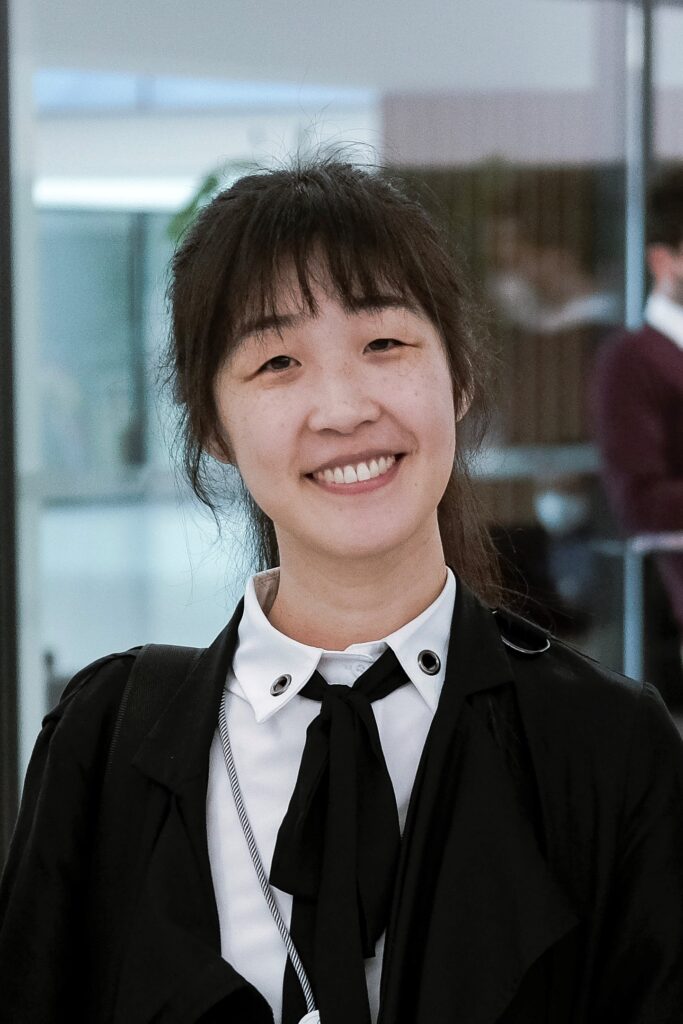
Home > Dr Connie Qian, Assistant Professor, University of Warwick
Dr Connie Qian, Assistant Professor, University of Warwick

“I was brought up in a semi-closed community in China, surrounded by the same friends that I grew up with. At the age of 17, I moved out of my hometown for the first time and travelled halfway around the world to study at the University of Nottingham, as it gave me the opportunity to study at one of the world’s top universities. I did my first degree in mechanical engineering as I was very good at maths and physics in school and was particularly interested in mechanics. However, studying a subject I was good at didn’t make my university life any easier. I struggled with homesickness, cultural shock, and language barriers. I also struggled to socialise with people therefore didn’t make any friends. I wasn’t happy, and wanted to go back to China and find a decent job as soon as I got my degree.
However, the turning point happened during my 3rd year at university, when I did my individual project on bending behaviour of composites within the Nottingham Composites Group. I knew hardly anything about composites when I was allocated the project, but I really enjoyed working on it, as it was strongly related to my favourite subject – solid mechanics. I also developed strong interests in FEA, particularly on how to represent real life problems using mathematical equations.
Towards the end of my 3rd year, an opportunity came along for a funded PhD placement at Nottingham. I took the offer straight away as funded PhD positions for international students were rare. I continued the journey on building my expertise in FEA during my PhD, where I worked on multi-scale modelling and structural optimisation for discontinuous fibre composites. My supervisors offered me a lot of support and encouragement during my PhD. During my PhD I started developing mental health problems due to the high stress. I had an eating disorder and anxiety and had to visit my GP and therapist on a regular basis. I felt ashamed to let anyone at work know about it, but one of my supervisors, had been telling me that I needed to have some hobby instead of working all the time. I took his advice and picked up an old hobby – playing the piano, which I had been doing since my childhood but stopped shortly after I arrived in the UK. Surprisingly, playing the piano daily didn’t jeopardise my work at all. Quite the opposite, it made me less stressed about my PhD and more productive at work. Mental health problem is something that keeps coming back to me, but the main thing I’ve learned is to speak to the people you trust instead of bottling it up and ask professionals for help when it gets too much, as they can help you to rationalise things, and suggest useful coping techniques to survive.
After the completion of my PhD, I stayed at Nottingham as a postdoc. My career didn’t progress very well during my postdoc time at Nottingham, as I didn’t know what I wanted to work on. I couldn’t identify what problems were there waiting to be solved, and I didn’t have blue sky research ideas either. Therefore, I just took whatever projects that was readily available, even though I didn’t like the topics. Consequently, I was no longer motivated and didn’t generate much research output. After three years, things weren’t getting any better so I decided to move to a place where I could start fresh and develop the skills and abilities I was lacking at the time. I joined WMG at the University of Warwick, who had a strong focus on medium-high TRL projects. I was exposed to real-life problems, which allowed me to think about how to solve them at fundamental levels. This has allowed me to develop ideas for proposals, so that I can bring in my own projects rather than working on a project that I’m given. I have won several grants during my time at WMG, with the most important one being my Innovation Fellowship funded by the Composites Hub, as it paved my way to become an independent academic. I have gradually moved away from structural modelling into process modelling, but I don’t mind. It has allowed me to broaden my research interests which means I have been able to keep bringing new projects in.
During my innovation fellowship I was appointed the EDI champion of the Composites Hub and I’ve been in the role since then. Engineering is a field that lacks diversity. I remember visiting another university and the engineering department not having any woman’s toilets. I have had co-workers make verbally abusive, disparaging and racists comments towards me. An effective EDI strategy is not just to defend protected characteristics (e.g., race, gender, religion, sexual orientation, disability) but to go above and beyond to celebrate these different characterises. We all experience the world differently, but I don’t feel my social background has been a detriment to any of the problems I have faced. if anything, it has allowed me to spot problems and solutions that were not obvious to my colleagues. Diversity encourages different perspective which inspires creativity. I would like to be a champion for change that allows researchers to receive the support they need and the opportunities they deserve, I hope my story can inspire other researchers who might experience difficulties to keep going and remind you that you are not alone.”